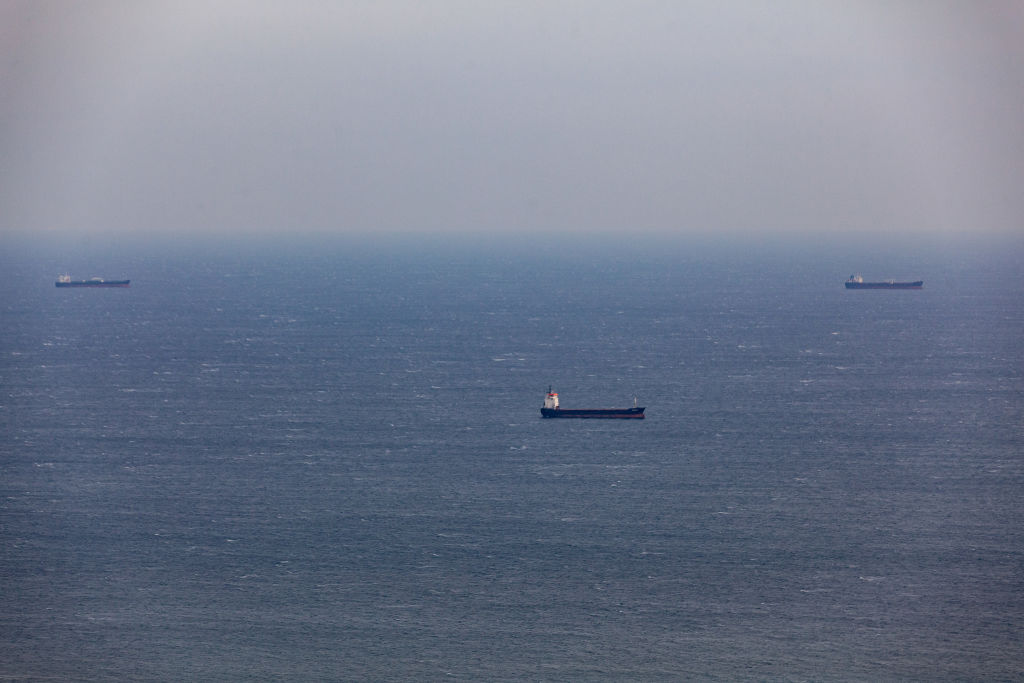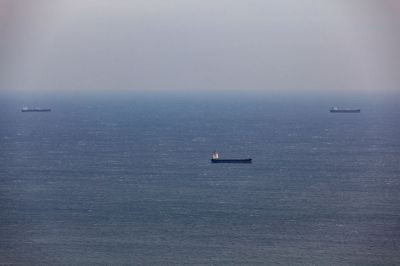A tweet posted Saturday from Richard Medhurst, a self-described independent journalist who regularly contributes to the Russian government-backed RT network, Syrian state-controlled Alikhbaria, and Iran-aligned Al Mayadeen, claims that Houthi forces recently sunk a ship and rescued its 24-man crew. The tweet has more than 22,000 likes and close to 9,000 retweets, and an accompanying repost on Instagram has more than 3,300 likes.
The post refers to the MV Rubymar, a Lebanese-registered and Belize-flagged cargo ship, that was struck by missiles fired by Iran-backed Houthi forces in Yemen on February 18 while moving through the Gulf of Aden.
Medhurst’s assertion that Houthis rescued the Rubymar’s 24-person crew is false. The sailors were actually rescued by a passing Singapore-flagged cargo vessel, Atlantic Lloyd’s MV Lobivia, which was en route to Djibouti at the time. On February 19, the crew was repatriated from the Lobivia by the Djibouti Port Authority aboard the Mont Arrey, a Djibouti-flagged high-sea tugboat.
Additionally, the Rubymar had not yet sunk when Medhurst made his claim, at least according to recent evidence. On February 24, Mohammed Ali al-Houthi—a leader in the Houthi organization—posted a tweet claiming that the Houthis could allow the Rubymar to be towed in exchange for additional relief trucks being allowed into Gaza, suggesting that the ship had not yet sunk. Blue Fleet Group, the Rubymar’s operating company, and LSS SAPU, the ship’s security firm, did not return questions from The Dispatch Fact Check regarding the ship’s current status.
The Houthis have launched at least 57 attacks on commercial and military ships since November of last year, with the U.S. and U.K. stepping up strikes against the Iran-backed terrorist organization in recent weeks. No deaths from Houthi missile strikes have been reported thus far, but many projectiles launched from Houthi territory in Yemen have been intercepted by the American, French, and Israeli militaries.
The strike on the Rubymar was one of the most significant strikes on a commercial vessel since the onset of Houthi aggression. Oil spilled from the vessel has caused an 18-mile oil slick in the Red Sea, and officials remain concerned that the 22,000 metric tons of fertilizer onboard the ship could spill and result in further environmental damage.
Medhurst did not return a request for comment from The Dispatch Fact Check.
If you have a claim you would like to see us fact check, please send us an email at factcheck@thedispatch.com. If you would like to suggest a correction to this piece or any other Dispatch article, please email corrections@thedispatch.com.







Please note that we at The Dispatch hold ourselves, our work, and our commenters to a higher standard than other places on the internet. We welcome comments that foster genuine debate or discussion—including comments critical of us or our work—but responses that include ad hominem attacks on fellow Dispatch members or are intended to stoke fear and anger may be moderated.
With your membership, you only have the ability to comment on The Morning Dispatch articles. Consider upgrading to join the conversation everywhere.